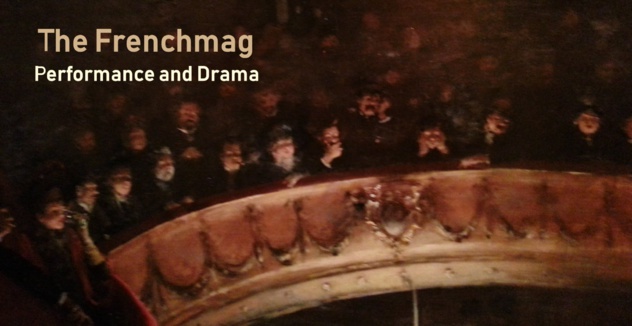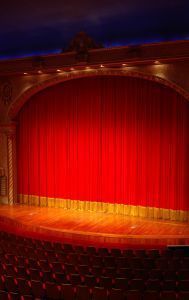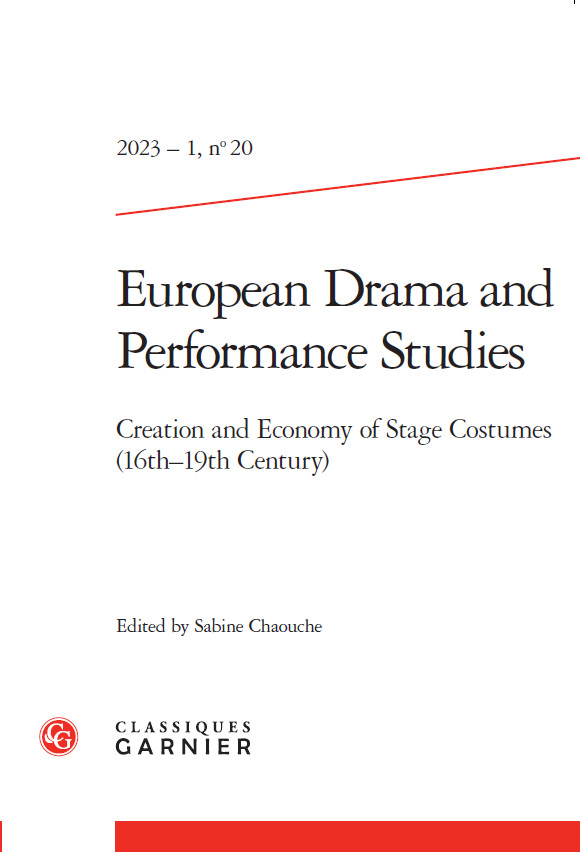Appel à communications
Colloque international « Jan Fabre ou l’esthétique du paradoxe »
Organisé par le laboratoire ICTT (Identité culturelle, textes et théâtralité) de l’Université d’Avignon et par l’École Supérieure d’Art d’Avignon
En partenariat avec le Festival d’Avignon
11-13 mai 2011
Cinq ans après la polémique 59ème édition du Festival d’Avignon, l’heure est venue de porter un regard serein sur l’œuvre de celui qui fut l’« artiste associé » de cette édition, l’auteur, metteur en scène, chorégraphe, performer, plasticien et vidéaste Jan Fabre. Ce colloque a pour objectif de prendre en considération les diverses facettes d’un créateur situé au croisement de plusieurs pratiques esthétiques.
En quoi l’œuvre de Jan Fabre questionne-t-elle la notion même de genre et les frontières traditionnelles entre les arts ?
Dans quelle mesure cette œuvre relève-t-elle du théâtre ?
Comment réévaluer la place du texte et de l’écriture dans le processus de création d’un artiste qui privilégie a priori la dimension visuelle de sa production ?
Quelles sont les influences qui s’exercent sur le travail de Jan Fabre ? Quel est son rapport à la culture flamande et au patrimoine artistique européen ?
Quelles sont les résonances perceptibles dans ses spectacles et dans ses œuvres plastiques (citation de motifs antiques, médiévaux, romantiques, etc.) ?
Quelles sont les sources philosophiques, littéraires, iconographiques, les références intellectuelles ou spirituelles convoquées ?
Selon quels critères élaborer une typologie de ses créations ?
Quels outils théoriques, conceptuels, critiques sont-ils pertinents pour rendre compte d’une œuvre aussi polymorphe ? Cette dernière est-elle réductible à ce que Hans-Thies Lehmann nomme le « théâtre postdramatique » ?
Quel accueil a été réservé aux créations de Jan Fabre, à la fois par le public et par la critique ? Qu’en est-il de la réception de ses œuvres tant en France qu’à l’étranger ?
Telles sont quelques-unes des questions qui pourront être traitées pendant ce colloque. Tout en partant de l’hypothèse selon laquelle l’œuvre de Jan Fabre est traversée par des tensions contradictoires qu’elle ne cesse de réactiver (archaïsme/modernité, animalité/cérébralité, statisme/mouvement, intériorité/extériorité, santé/maladie, etc.), il s’agira d’envisager cette œuvre comme la manifestation d’une volonté de « totalisation » de l’humain.
Comité scientifique :
Hortense Archambault (codirectrice du Festival d’Avignon),
Jean-Marc Ferrari (directeur de l’École Supérieure d’Art d’Avignon),
Hélène Laplace-Claverie (Professeur à l’Université d’Avignon),
Lydie Toran (doctorante à l’Université d’Avignon),
Luk Van den Dries (Professeur à l’Université d’Anvers).
Merci de bien vouloir adresser vos propositions de communication (d’une quinzaine de lignes) avant le 15 janvier 2011 aux deux adresses suivantes : h.laplace-
claverie@wanadoo.fr et lydietoran@yahoo.com
Colloque international « Jan Fabre ou l’esthétique du paradoxe »
Organisé par le laboratoire ICTT (Identité culturelle, textes et théâtralité) de l’Université d’Avignon et par l’École Supérieure d’Art d’Avignon
En partenariat avec le Festival d’Avignon
11-13 mai 2011
Cinq ans après la polémique 59ème édition du Festival d’Avignon, l’heure est venue de porter un regard serein sur l’œuvre de celui qui fut l’« artiste associé » de cette édition, l’auteur, metteur en scène, chorégraphe, performer, plasticien et vidéaste Jan Fabre. Ce colloque a pour objectif de prendre en considération les diverses facettes d’un créateur situé au croisement de plusieurs pratiques esthétiques.
En quoi l’œuvre de Jan Fabre questionne-t-elle la notion même de genre et les frontières traditionnelles entre les arts ?
Dans quelle mesure cette œuvre relève-t-elle du théâtre ?
Comment réévaluer la place du texte et de l’écriture dans le processus de création d’un artiste qui privilégie a priori la dimension visuelle de sa production ?
Quelles sont les influences qui s’exercent sur le travail de Jan Fabre ? Quel est son rapport à la culture flamande et au patrimoine artistique européen ?
Quelles sont les résonances perceptibles dans ses spectacles et dans ses œuvres plastiques (citation de motifs antiques, médiévaux, romantiques, etc.) ?
Quelles sont les sources philosophiques, littéraires, iconographiques, les références intellectuelles ou spirituelles convoquées ?
Selon quels critères élaborer une typologie de ses créations ?
Quels outils théoriques, conceptuels, critiques sont-ils pertinents pour rendre compte d’une œuvre aussi polymorphe ? Cette dernière est-elle réductible à ce que Hans-Thies Lehmann nomme le « théâtre postdramatique » ?
Quel accueil a été réservé aux créations de Jan Fabre, à la fois par le public et par la critique ? Qu’en est-il de la réception de ses œuvres tant en France qu’à l’étranger ?
Telles sont quelques-unes des questions qui pourront être traitées pendant ce colloque. Tout en partant de l’hypothèse selon laquelle l’œuvre de Jan Fabre est traversée par des tensions contradictoires qu’elle ne cesse de réactiver (archaïsme/modernité, animalité/cérébralité, statisme/mouvement, intériorité/extériorité, santé/maladie, etc.), il s’agira d’envisager cette œuvre comme la manifestation d’une volonté de « totalisation » de l’humain.
Comité scientifique :
Hortense Archambault (codirectrice du Festival d’Avignon),
Jean-Marc Ferrari (directeur de l’École Supérieure d’Art d’Avignon),
Hélène Laplace-Claverie (Professeur à l’Université d’Avignon),
Lydie Toran (doctorante à l’Université d’Avignon),
Luk Van den Dries (Professeur à l’Université d’Anvers).
Merci de bien vouloir adresser vos propositions de communication (d’une quinzaine de lignes) avant le 15 janvier 2011 aux deux adresses suivantes : h.laplace-
claverie@wanadoo.fr et lydietoran@yahoo.com
Call for Papers
International Conference: “Jan Fabre or the aesthetics of paradox”
Organised by Identité culturelle, textes et théâtralité (EA 4277)
University of Avignon
and by the Avignon School of Art
in partnership with the Avignon Theatre Festival
11th-13th May 2011
Five years after the controversy sparked off by the 59th Avignon Theatre Festival, it is time to re-examine with calm, critical distance the work of the author, director, choreographer, performer, visual artist and video director, Jan Fabre, who was the artist in residence at the Festival that year. The aim of this conference is to consider the diverse facets of an artist whose work is situated at the crossroads between several different aesthetic practices.
How does the work of Jan Fabre question the very idea of genre and the traditional frontiers between the arts, and to what extent can it be considered as theatre?
How should the role of the text and the written word be re-evaluated as part of the creative process of an artist who, at first sight, gives priority to the visual dimension of his work?
What are the influences at play in his work? What is its relationship to Flemish culture and European cultural heritage? What kind of echoes are to be found in his theatrical performances and his art works (quotations of classical, medieval, romantic motifs etc.)? What are his philosophical, literary, iconographic sources and his intellectual and spiritual references?
What are the criteria for establishing a typology of his work?
What are the theoretical, conceptual and critical tools best adapted to the task of analysing such a polymorphous body of work?
Can it be considered as falling into the category of what Hans-Thies Lehmann has termed “Postdramatic Theatre”?
What kind of reception did the public and critics give to Jan Fabre’s performances? How have they been received in France and elsewhere?
These are some of the questions which the conference will attempt to answer. Starting from the hypothesis that the work of Jan Fabre is made up of tensions and contradictions that it constantly revives, (archaism/modernity, animality/cerebrality, stasis/movement, interiority/exteriority, health/illness), the aim is to envisage his work as the manifestation of a desire to “totalise” the human in all its varied aspects.
Conference convenors:
Hortense Archambault (joint director of The Avignon Theatre Festival),
Jean-Marc Ferrari (Head of The Avignon School of Art),
Hélène Laplace-Claverie (Professeur of French Theatre Studies, University of Avignon),
Lydie Toran (Ph.D student in French Theatre Studies, University of Avignon),
Luk Van den Dries (Professeur of Theatre, Film and Literature Studies, University of Antwerp).
Please send enquiries and proposals for papers (300 words approx) to h.laplace-claverie@wanadoo.fr and lydietoran@yahoo.com
Deadline: 15th January 2011.
International Conference: “Jan Fabre or the aesthetics of paradox”
Organised by Identité culturelle, textes et théâtralité (EA 4277)
University of Avignon
and by the Avignon School of Art
in partnership with the Avignon Theatre Festival
11th-13th May 2011
Five years after the controversy sparked off by the 59th Avignon Theatre Festival, it is time to re-examine with calm, critical distance the work of the author, director, choreographer, performer, visual artist and video director, Jan Fabre, who was the artist in residence at the Festival that year. The aim of this conference is to consider the diverse facets of an artist whose work is situated at the crossroads between several different aesthetic practices.
How does the work of Jan Fabre question the very idea of genre and the traditional frontiers between the arts, and to what extent can it be considered as theatre?
How should the role of the text and the written word be re-evaluated as part of the creative process of an artist who, at first sight, gives priority to the visual dimension of his work?
What are the influences at play in his work? What is its relationship to Flemish culture and European cultural heritage? What kind of echoes are to be found in his theatrical performances and his art works (quotations of classical, medieval, romantic motifs etc.)? What are his philosophical, literary, iconographic sources and his intellectual and spiritual references?
What are the criteria for establishing a typology of his work?
What are the theoretical, conceptual and critical tools best adapted to the task of analysing such a polymorphous body of work?
Can it be considered as falling into the category of what Hans-Thies Lehmann has termed “Postdramatic Theatre”?
What kind of reception did the public and critics give to Jan Fabre’s performances? How have they been received in France and elsewhere?
These are some of the questions which the conference will attempt to answer. Starting from the hypothesis that the work of Jan Fabre is made up of tensions and contradictions that it constantly revives, (archaism/modernity, animality/cerebrality, stasis/movement, interiority/exteriority, health/illness), the aim is to envisage his work as the manifestation of a desire to “totalise” the human in all its varied aspects.
Conference convenors:
Hortense Archambault (joint director of The Avignon Theatre Festival),
Jean-Marc Ferrari (Head of The Avignon School of Art),
Hélène Laplace-Claverie (Professeur of French Theatre Studies, University of Avignon),
Lydie Toran (Ph.D student in French Theatre Studies, University of Avignon),
Luk Van den Dries (Professeur of Theatre, Film and Literature Studies, University of Antwerp).
Please send enquiries and proposals for papers (300 words approx) to h.laplace-claverie@wanadoo.fr and lydietoran@yahoo.com
Deadline: 15th January 2011.



